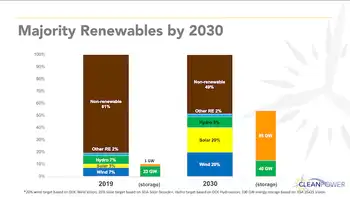Samsung deal keeps jobs from going south
But at the 11th hour the province fails to step up and Samsung goes with Michigan, New York or Ohio instead.
Opposition parties would be accusing the McGuinty government of "losing jobs to the Americans." Industry groups would be calling Ontario a laggard without vision or guts.
Now, back to this universe. Ontario is the winner.
It kept a $7 billion clean-energy deal from flowing south, and it did it by putting the right regulations and policies in place to attract that investment.
Samsung, which has committed to building four manufacturing plants in Ontario and developing 2,500 megawatts of wind and solar projects, said it and its consortium partners were lured to Ontario because this province's new Green Energy Act and feed-in-tariff program stood out in North America.
The response so far?
Boos from the opposition, which is accusing the government of cutting a backroom deal with a foreign company that will lead to higher electricity prices.
This kind of rhetoric ignores the fact that we're living in 2010, not 1960.
Electricity infrastructure is aging and replacing it is going to cost more – more so in a world that puts a price on carbon emissions.
The days of cheap, dirty electricity are coming to an end. There's no way around it.
Another reaction to the Samsung deal has been panic from local power producers, including wind and solar developers, who argue they're being treated unfairly because of special treatment given to Samsung.
Samsung is getting roughly 4 per cent more for the solar and wind power it produces than other participants in Ontario's feed-in-tariff (FIT) program, which already pays a generous amount to producers of renewable electricity.
The government calls this extra incentive an "economic adder," which is used as a flexible negotiating tool – not unlike tax breaks used to lure foreign investment.
It's expected this adder, which over 25 years has a net-present value of $437 million, will contribute $1.60 more a year to the average residential electricity bill.
Put another way, that's an increase of 0.15 per cent on the power bill of a typical household.
As one industry observer said, that's the cost of paying for a large double-double at Tim Horton's once a year.
The $437 million also comes with many strings attached. If Samsung and its consortium partners don't deliver on manufacturing and jobs, then they forfeit the adder.
A legitimate question, however, is whether other parties can qualify for the same kind of economic adder granted to Samsung.
At least two other consortia, both based primarily in Ontario, are attempting to establish supply chains in the province to manufacture wind turbines and create thousands of jobs.
They may not have a long track record, and they may lack the brand power and deep pockets of a Samsung, but they are local companies deserving of local support and the confidence of their own government.
Premier Dalton McGuinty made clear that if any other consortia – local or foreign – want to talk about manufacturing, energy development and job creation on a large scale, then he's all ears.
He should be held to those words, for the sake of fairness.
Speaking of fairness, why has 500 megawatts of transmission capacity been set aside for the Korean consortium when everyone else has to duke it out for access?
The industry protest on this point is understandable.
The whole point of the Green Energy Act and FIT program is to provide equal access to the grid and electricity rates that are the same for all participants.
Only 2,500 megawatts of transmission capacity are available in Ontario, and they're particularly scarce in the areas of southwest Ontario where Samsung is being given priority.
Other developers waiting patiently for grid access see the Korean giant as a VIP being shuffled to the front of the line. They're angry.
But on further reflection, taking this position is akin to saying the government doesn't have a right to reserve transmission for any big project, like a natural gas power plant?
In fact, it did exactly that when it negotiated a deal to have Sithe Global, a large U.S. power developer, build an 840-megawatt natural gas plant in Brampton. It may be a hard pill for some to swallow, but why is the Samsung deal any different? Critics, however, have another concern. They charge that the McGuinty government broke protocol by striking a sole-sourced deal with Samsung. The insinuation here is that a request for proposals should have been put out so Samsung's rivals could submit competing bids. Opposition parties, for example, are already calling this another e-health scandal in waiting.
The leap of logic here is mind-boggling.
Governments put out tenders for specific things, like fleet vehicles, office equipment and IT systems as a way to notify industry of a particular need. The vague but ongoing task of building the economy and creating jobs, on the other hand, is an open invitation to anyone with a proposal, and you can bet those proposals are being shopped around to other job-hungry jurisdictions.
We're in a seller's market. This isn't about Ontario ensuring competition. This is about Ontario having to desperately compete for jobs during difficult economic times.
Indeed, the province's strategy in this regard is quite clever, even if it is somewhat sneaky. Think about it. There appears nothing in this Samsung deal that impacts the budget. The McGuinty government is, in effect, using electricity rates to cover the cost of a major economic development strategy – kind of like adding a special fee on gasoline sales to lure a major automaker to the province.
A controversial approach to be sure, particularly with the HST coming to our hydro bills in July, but certainly this is one creative way of investing in jobs without adding to a record provincial deficit.
The Samsung deal isn't perfect, but it's pretty darn good. Now, Mr. Premier, you just need to open your ears and land a couple of large local deals. They're out there, in your own backyard. You just have to listen and have a little faith in Ontario entrepreneurs.
Related News

Hot Houston summer and cold winter set new electricity records
HOUSTON - Last year's Houston cold winter and hot summer drove power use to record levels, especially among households that rely on electricity for air conditioning.
Electricity generation increased 4 per cent nationwide in 2018 and produced 4,178 million megawatt hours, surpassing the previous peak of 4,157 megawatt hours set in 2007, the Energy Department reported.
U.S. households bought 6 percent more electricity in 2018 than they did the previous year, reflecting the fact 87 percent of households cool their homes with air conditioning and 35 percent use electricity for heating.
Electricity sales to the commercial sector increased 2 percent in 2018 compared…





